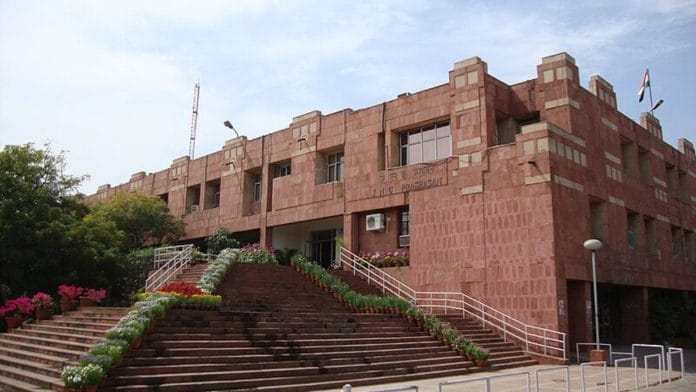New Delhi: A parliamentary panel has recommended expanding the government’s Institution of Eminence (IoE) scheme to prestigious institutions, such as Delhi’s Jawaharlal Nehru University (JNU).
In its report on the Demands for Grants of the Department of Higher Education (2025-26) tabled in Parliament Wednesday, the parliamentary standing committee on education, women, children, youth and sports recommended that greater autonomy be extended to constituent colleges of existing IoEs, such as Delhi University (DU).
The IoE scheme was launched in 2017 with the aim to enable Indian higher education institutions to enter global rankings. The IoE tag provides greater autonomy to the institutes. The government also provides funding to the public institutes under this initiative.
The initial target was to award IoE status to 20 institutions. So far, eight public institutions have received the tag—IIT Delhi, IIT Bombay, IIT Madras, IIT Kharagpur, IISc Bangalore, Banaras Hindu University, University of Hyderabad and University of Delhi.
Additionally, four private institutions have been granted the status—Manipal Academy of Higher Education, Birla Institute of Technology & Science, O.P. Jindal Global University and Shiv Nadar University.
Questions had been raised when JNU was excluded from the IoE list in 2017, while Reliance’s Jio Institute was recommended for it in 2018 under the “greenfield category” for institutes still to be established.
However, Jio Institute is yet to receive the tag as the memorandum of understanding between the institute and the government has not been signed.
“Several key institutions—such as Jawaharlal Nehru University, which is widely regarded as among the world’s foremost centres for research in social sciences, humanities and development studies—have been excluded from the IoE’s ambit,” the committee noted in the report tabled Wednesday. “The Committee recommends that further expansion of the Institutes of Eminence Scheme should be considered to incorporate these institutions.”
In 2022, JNU Vice-Chancellor Santishree D. Pandit had confirmed that the university had applied for the IoE tag. Following the release of the 2023 NIRF rankings, where JNU ranked as the 10th best higher education institution in India, she had reiterated that JNU should be granted IoE status and receive additional funding to enhance its infrastructure.
The parliamentary panel also recommended that the process of notifying the remaining universities as IoEs should be expedited, emphasising that almost eight years after the IoE scheme was launched, the Department of Higher Education in the Ministry of Education has been able to notify only 12 of the target of 20 institutes.
Also Read: Older IITs hit hard as House panel flags ‘unusual decline’ in placements between 2021 & 2024
Extending autonomy to constituent colleges
The committee also recommended that the autonomy envisioned for IoEs needs to be extended to constituent colleges of the IoEs.
The report noted that rather than being granted autonomy, constituent colleges of IoEs, like DU, have been caught up in protracted issues with the university management over basic functions, such as recruitment and promotion of faculty.
“For instance, the committee has been informed that at St Stephens College within DU, recruitment and promotion processes have been stalled since 2022, despite more than 30 vacancies in faculty positions. The matter, which involves the appointment of the Principal, is now sub-judice. The committee recommends that the litigation may be resolved at the earliest,” the report said.
Meanwhile, the panel also noted the crucial role played by India’s oldest universities, such as Allahabad University, Banaras Hindu University, Calcutta University and others, in shaping national education, scientific progress and cultural exchange. Given their historical significance, the committee recommended that the ministry should create a programme to support these universities.
“The committee, therefore, recommends that the ministry conduct an assessment of India’s oldest public universities with historical significance, and develop a programme to support these universities in continuing their leadership of India’s academic and intellectual development. This may be an extension of the Institutes of Eminence scheme, or a separate scheme,” the report read.
(Edited by Mannat Chugh)
Also Read: House panel says Centre withholding funds because states not adopting PM SHRI is unjustifiable






